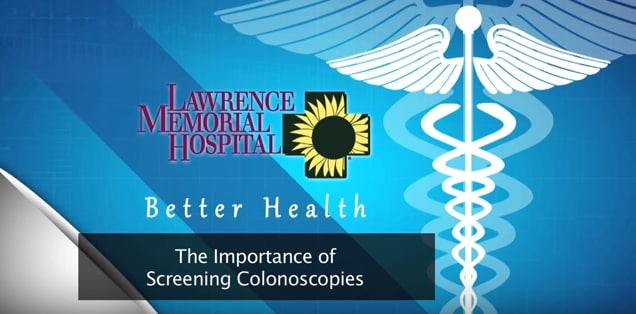
The Department of Health and Human Services says if everyone age 50 and older were screened regularly, six out of 10 deaths from colorectal cancer could be prevented.
Colorectal cancer screening allows extra growths of tissue, known as polyps, to be found and removed before they can develop into cancers. Screening also allows colorectal cancers to be found earlier, when the disease is easier to cure.
It usually is recommended that those with no known risk factors for colorectal cancer begin screening at age 50. Some people may need to begin screening at an earlier age, including African-Americans, those with a family history of colorectal cancer, or personal risk factors such as inflammatory bowel disease. Talk with your health provider about the screening recommendations for you.
There are several tests used to screen for colorectal cancer. Generally, a colonoscopy screening test is most commonly done, as it allows for visualization of the entire colon and rectum.
“Everyone over the age of 50 ought to have a screening colonoscopy,” says Dr. Brooks.
The American Cancer Society recommends that those with a normal colonoscopy test result have a repeat test about every 10 years. If a polyp is found, more frequent screening may be recommended. Usually the incidence of colorectal cancer increases with age.
March is National Colorectal Cancer Awareness Month. And Dr. Brooks says there is no better time to learn the facts about colon cancer and get tested. The American Cancer Society’s estimates for the number of colorectal cancer cases in the United States for 2016 are 95,270 new cases of colon cancer and 39,220 new cases of rectal cancer. It is expected to cause about 49,190 deaths during 2016.
Over the past several decades, the death rate from colorectal cancer has been steadily declining. There are a number of likely reasons for this.
Dr. Chad Tate, a general surgeon at Lawrence General Surgery, said one reason is colorectal polyps are now being found more often by screening and removed before they can develop into cancers or are being found earlier when the disease is easier to treat.
A colonoscopy has the advantage of physicians being able to remove any abnormalities that are found during the procedure. Before cancer develops, a growth of tissue or tumor usually begins as a non-cancerous polyp on the inner lining of the colon or rectum. These are often detected and some can be removed during the colonoscopy.
“It’s ideal to deal with it when it can still be addressed with a scope endoscopically during a colonoscopy,” says Dr. Tate. “That’s the ideal time to manage a polyp. Once the surgeons get involved, it becomes a much more complicated affair.”
If a cancerous growth is detected during a screening, there are many successful surgical, chemotherapy and radiation treatment options available. Many of the treatment options used today are new in the past 10 years and are proving to be very effective, which has contributed to the decrease in death rates for colorectal cancer. As a result, the American Cancer Society estimates there are now more than one million survivors of colorectal cancer in the United States.
Lawrence Memorial Hospital has two sites in Lawrence where colonoscopies are performed: the LMH Endoscopy Center at the main campus at 325 Maine St. and the LMH West Endoscopy Center at 4525 West 6th St. If you are 50 or older, talk with your doctor about colon cancer screening.
You also can learn more by watching a video in which Charles Brooks, MD, Tracy Hill, APRN, and Chad Tate, MD, discuss the importance of screening colonoscopy. Visit lmh.org/colon.
— Janice Early, MBA, is Vice President of Marketing and Communications at Lawrence Memorial Hospital, a major sponsor of WellCommons. She can be reached at janice.early@lmh.org.